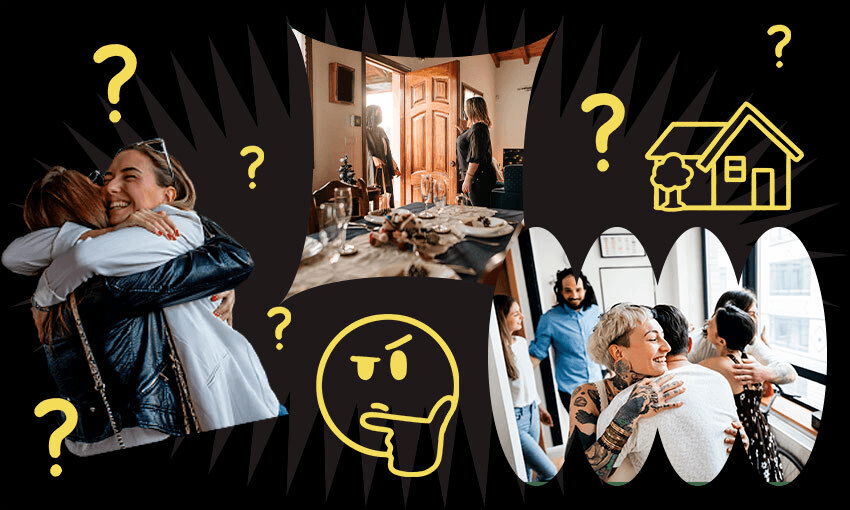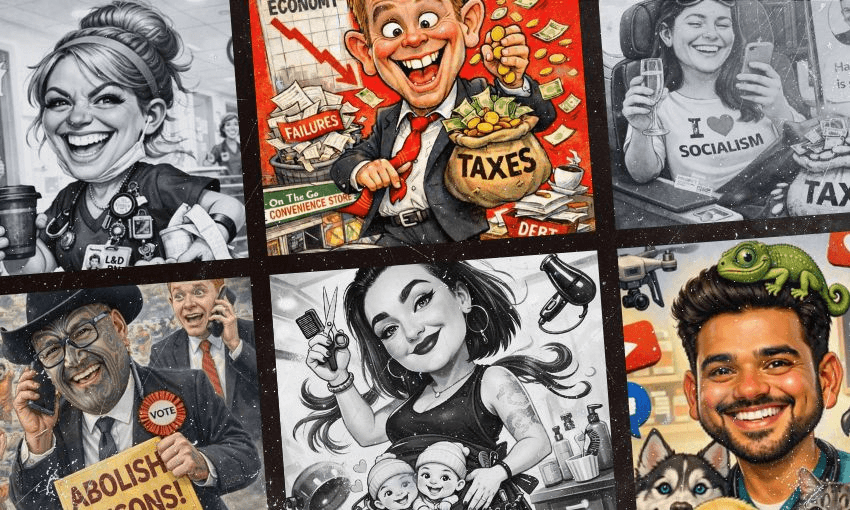Siouxsie Wiles has some practical advice for safe socialising under the new traffic light system, which starts today.
We now have a set of pretty firm Ministry of Health guidelines for work places, schools, retail and community events to limit the spread of Covid-19 under the new traffic light system. What we don’t really have is official guidance for private gatherings, and the safest ways to socialise this holiday period. From December 3, it’s essentially up to you to weigh up the risks when it comes to socialising privately.
Are people allowed inside my home?
Yes, but the number of people allowed is different in red and orange areas, and whether or not you limit your guests to those with a My Vaccine Pass. Obviously, children under 12 can’t be vaccinated yet, so don’t have a My Vaccine Pass. They can attend a My Vaccine Pass gathering.
How many people are allowed at my house?
If you are limiting your guests to those with a My Vaccine Pass (and under 12s) then at red, the limit is 100 people and at orange there is no limit. If you are having a gathering which includes unvaccinated people over 12 then the limit is 25 at red and 50 at orange.
As for how many is safe, it depends. Here’s what we must remember: people with Covid-19 are infectious for a few days before they even know it. The virus spreads well in confined spaces where people are in close contact, talking loudly, singing and shouting. Vaccinated people are far less likely to get infected, but if they do, they can still be infectious. Not everyone who is vaccinated will have mounted a protective immune response. People with cancer or kidney disease, people who have had a transplant or are on immunosuppressive treatments are less likely to be protected. We also know that protection wanes so the closer you are to being six months since your second dose, the less protected you might be. This is even truer the older you are. So, a big gathering of vaccinated people is pretty safe for most vaccinated people who are well within six months of getting their second dose but might not be safe enough for those with cancer, for example, or for the unvaccinated children. It’ll be safer if everyone is wearing a mask and there is good ventilation.
Can I finally hug my family and friends?
Let’s assume for the sake of this that you are all vaccinated. Like before, it’ll be pretty safe for most people but less safe if one of you has cancer or any of those other conditions that put you at high risk. It will also depend on whether you are hanging out with them for a while, or just in passing. If you are spending lots of time in their company unmasked, then you might as well give them a hug. In saying that, there are lots of people who don’t like hugging at the best of times, and many for whom the pandemic will have made them even more averse, so I’d like to see us normalise non-contact greetings and asking people if they want to be hugged before diving in.
How risky is it for fully vaccinated people to travel from orange zones to red zones?
If you are someone who may not be well protected by vaccination, then it’s obviously risky coming to a part of the country with an active outbreak. You can lower that risk by limiting what you do and who you interact with and making sure you wear a mask while out and about. If you are someone “low risk” and visits lots of places in Auckland, then the big risk is being exposed to the virus and taking it back home with you.
How risky is it for fully vaccinated people to travel from red zones to orange zones?
The big worry with this scenario is that people may not realise they are infected and so take the virus with them to a part of the country with less protection and less healthcare capacity. The risk can be mitigated by people isolating for 10 days or so before leaving Auckland and travelling straight to their family and not doing any other activities. But communities all around the country are asking Aucklanders to stay away while they continue to get their vaccination rates up. I think we should respect their wishes and plan a staycation instead.
Is it safe to plan indoor public events for next year?
It’s safe to plan events, but whether they will be able to happen is really going to depend on how well we keep cases low. That relies on people continuing to get vaccinated, getting their booster when they are due, and the country rolling out a vaccine to under 12s. We should also be normalising mask use even if vaccinated, and especially indoors. If you are planning an event, look at things like ventilation and HEPA filtration. Those will make a massive difference to how safe a space is.
Are bubbles or extended bubbles still a good way of mitigating risk in the traffic light system?
Yes, especially if someone in your bubble is vulnerable.
Should I get tested regularly, just to be safe?
It is really important people continue to get tested if they have any symptoms that could be Covid-19. We may soon be able to get rapid tests at places like pharmacies. These aren’t as reliable as the PCR test but may be handy in certain circumstances, like before getting on a plane. They can miss quite a few positives though, so are less useful if people are just doing them as a one-off.



